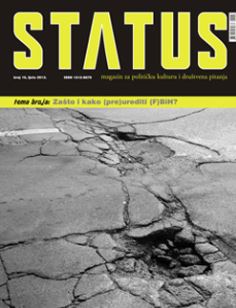
The international community and the structure of Bosnia and Herzegovina
Međunarodna zajednica i ustroj Bosne i Hercegovine
Pitanje unutrašnjeg uređenja BiH, a time i regulacije nacionalnih statusa i odnosa triju bh. naroda nije baš trebalo predstavljati, kako se znalo reći, niti „problem iz pakla“ niti „kvadraturu kruga“. Već se na temelju ustavne definicije socijalističke BiH, po kojoj je imala biti tvorevinom triju konstitutivnih, suverenih i jednakopravnih naroda tj. Hrvata, Srba i Muslimana (Bošnjaka) dalo relativno lako oblikovati njen ustroj. Jednako tako i washingtonsko-daytonski model mogao je biti dobrom osnovom za adekvatno strukturiranje nacionalnih statusa i odnosa. Doduše nije bilo za očekivati od bh. naroda i njihovih politika, „pritisnutih“ neusklađenim htijenjima i „opravdanim strahovima“ da same razriješe to pitanje. Za takvo što trebao je „strog i pravedan“ medijator. I tu, krajnje odgovornu ulogu preuzela je još 1992. međunarodna zajednica. Pri tome je njena autoritativnost, obzirom da proizlazi iz moći konstanta s kojom se može računati. No, koliko se može računati sa pravičnošću? Sa medijatorski podrazumijevanim principom podjednakog uvažavanja i zakidanja pozicija svih triju bh. naroda na putu uspostave harmonične BiH
More...
